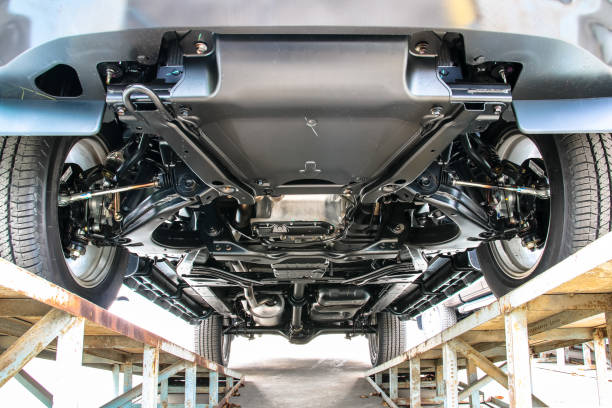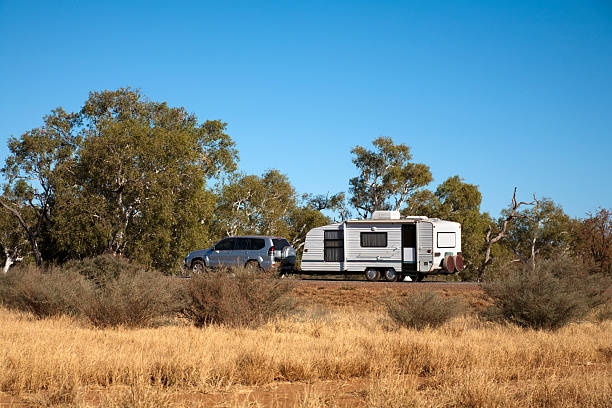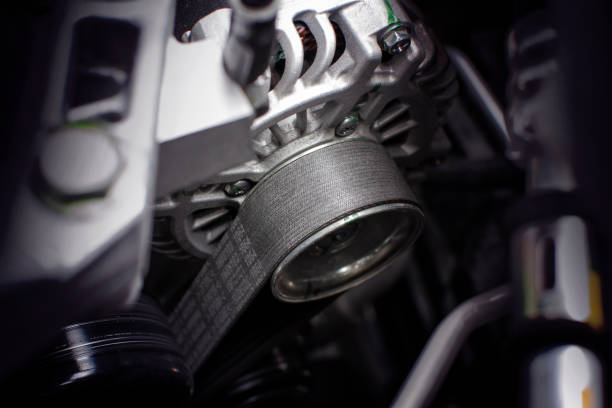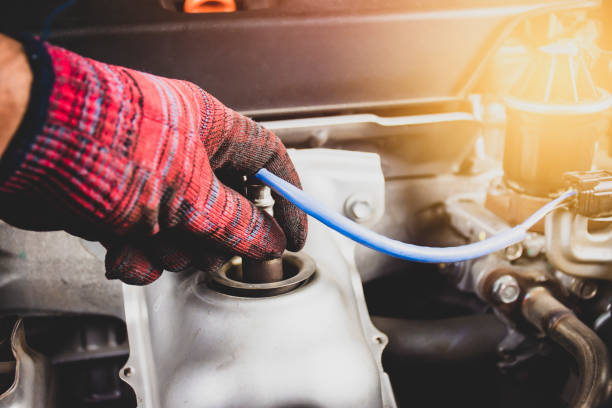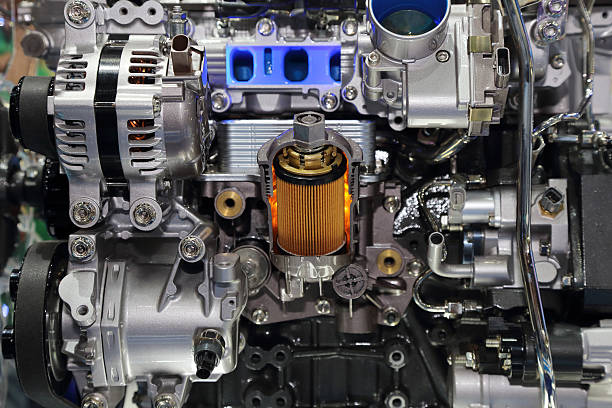
If your vehicle has a separate fuel filter from the fuel pump, it’s something that you need to replace as part of routine maintenance. But when you’re trying to budget out car maintenance costs or just trying to ensure the mechanic doesn’t rip you off, how much should you expect to spend?
We’ll break it all down for you here, and we’ll walk you through how often you should replace the fuel filter in your vehicle. That way you don’t have to worry about a shady mechanic trying to get you to replace it more than you should or charging you too much when they do replace it.
How Much Does It Cost to Replace a Fuel Filter?
The amount you should expect to spend to replace a fuel filter really varies depending on where you take your vehicle. We’ve highlighted three different price points for a fuel filter replacement cost for you to consider here.
Dealership
If you’re taking your vehicle to a dealership for a new fuel filter you can expect to spend around $75 to $175 for it. A big portion of this price comes down to the type of vehicle you drive and the cost of the part, but the dealership plays a role in it too.
This is the most expensive route to getting a new fuel filter on your vehicle, but they’ll generally check out everything else on your vehicle and ensure you’re good to go before you leave.
Local Mechanic
If you find another mechanic in your area to look at your vehicle, you can expect to spend between $50 and $150 for a new fuel filter. Typically, mechanics that don’t work at a dealership charge a little less for repairs, but they might not give the rest of your vehicle as thorough of a look over.
DIY
By far the least expensive way to get a new fuel filter on your vehicle is to do it yourself. That’s because if you’re doing it yourself, you really only have to worry about the fuel filter cost. Depending on what you drive and what brand of fuel filter you go with, you can expect to spend between $10 and $75 for a new fuel filter.
When installing the new fuel filter always fill it up with fuel before installing the new filter or else, you’re introducing air into the system and you’ll need to bleed it out before starting the vehicle back up.
When Should You Replace a Fuel Filter?
Now that you know a little more about how much you should expect to spend to replace a fuel filter, it’s time to figure out how often you should replace it.
As a general rule, you should replace a fuel filter every 30,000 miles or every 2 years, whichever comes first. If you don’t know the last time someone changed the fuel filter in your vehicle we recommend swapping it out and keeping track from this point forward.
However, this is only true if your vehicle has a fuel filter that’s separate from the fuel pump. If your vehicle has a fuel pump with an integrated fuel filter, simply replace it when you start noticing adverse symptoms.
Symptoms of a Faulty Fuel Filter
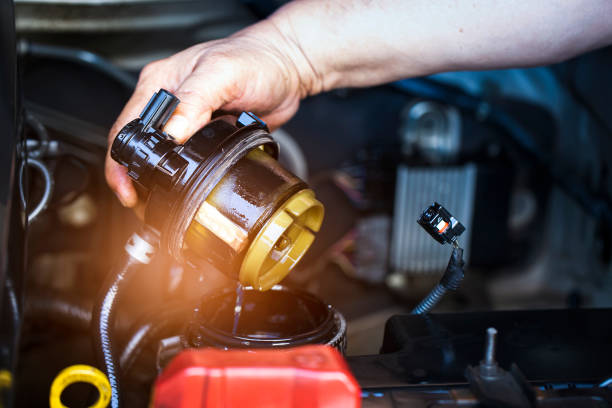
If you have an integrated fuel filter or you don’t keep up with the scheduled maintenance on your vehicle, what can start to happen if you have a clogged fuel filter? Below we’ve highlighted five different symptoms of a fuel filter you should replace.
1. Trouble Starting the Engine
Your engine needs fuel to run, and if your vehicle has a clogged fuel filter, it’s going to struggle to get the fuel it needs to get running. As long as the vehicle doesn’t have an extremely clogged fuel filter it should start up eventually, but it’s probably going to take a little longer to get there.
2. Engine Runs Rough/Stalls
Even after you get your engine running a clogged fuel filter will likely lead to some performance problems. That’s because the clogged fuel filter still prevents the proper amount of fuel from reaching the engine at the right time.
If it’s just a slight clog the engine will run a little rough with some performance delays, but serious clogs can make your entire engine stall out.
3. Check Engine Light
Your vehicle has tons of sensors, so if the engine isn’t performing as it should, there’s a good chance you’ll get a check engine light. However, most of the time the code won’t tell you that the fuel filter is the problem.
It could point you in a ton of different directions, but one of the most common codes is for a system that’s running lean or misfires in different cylinders.
4. Damaged Fuel Pump
A clogged fuel filter will put extra pressure on the fuel pump, and too much of a strain can cause it to wear out prematurely. Considering a new fuel pump costs between $250 and $1,000, it’s in your best interest to keep up with the fuel filter replacements.
5. Drop in Fuel Efficiency
While you might expect a clogged fuel filter to improve your fuel efficiency with a performance tradeoff, that’s not how it works. Your engine’s PCM will pick up a “lean” reading from the combustion chamber, so it’ll start to pump more fuel.
Since the fuel pump actually sent the right amount of fuel the first time you’ll end up with more fuel than you need. Not only does this lead to a drop in fuel efficiency, but it’s also putting extra stress on both the fuel pump and your engine.
Final Thoughts
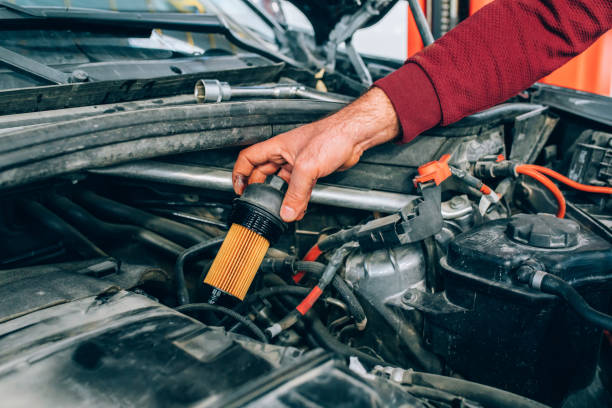
Now that you know a little more about fuel filter replacement costs, all that’s left is for you to find a repair shop near you that charges a decent rate for a new fuel filter. Just keep in mind that if your vehicle has a fuel pump with an integrated fuel filter you do not need to replace it.
Check your owner’s manual if you’re unsure about what type of fuel filter your vehicle has.





